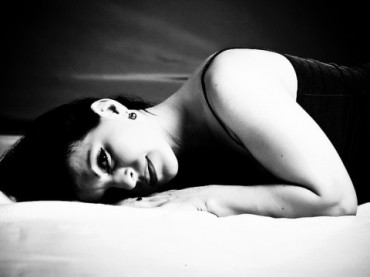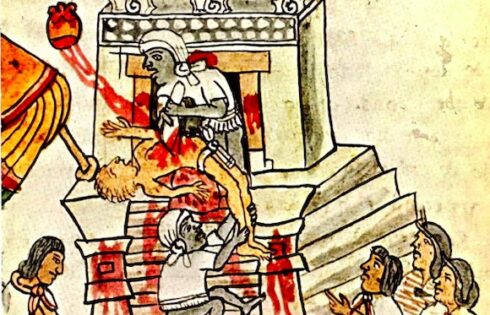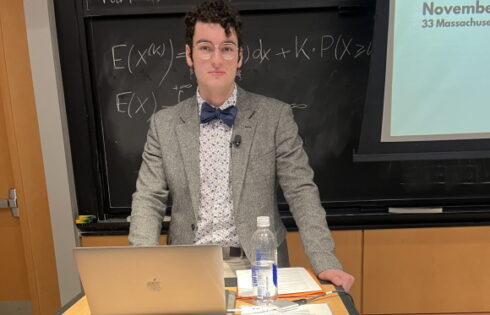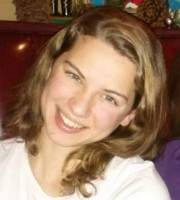
A hodgepodge of feminist progressiveness
The 2014-15 class catalogs at many of the most well-respected universities in America are looking colorful this year as women’s and gender studies continues to be a major field of study at a number of prestigious schools.
Take Barnard College, which strives to “identify and denaturalize core assumptions that are attached to present-day systems of gender, race and sexuality” through the school’s Women, Gender and Sexuality Studies program, its online description states.
Barnard will offer a class this year called “Body Histories: The Case of Footbinding” since “the deceptively small subject of footbinding provides a window into the larger family dynamics and sexual politics in Chinese history and society.” This class for some reason includes “Chinese erotic novels and prints.” It also fulfills the general education requirement in historical studies.
Wellesley College offers a feminist cultural studies class this year that looks at “both dominant historical modes of representation of cultural others in the United States, in colonial/postcolonial contexts, and at contemporary modes of oppositional self-representation as a form of cultural critique and at contemporary self-representations.”
In laymen’s terms, it will teach students America was founded by white racist men.
Students at Wellesley can also study Elvis’ “heteronormative sexuality” and the African-American influences on his music when they enroll for “Reading Elvis Presley and 1950s America.” That’s the kind of well-rounded education $60,000 a year in tuition and fees buys nowadays.
Speaking of pop culture, Swarthmore College now makes the study of “Queer Media” available, noting “even the most mainstream media forms have been queered by sub-cultural reception.”
Students in the class will challenge “classic Hollywood’s heterosexual presumption” and look at “LGBT aesthetic strategies and modes of address in contexts such as the American and European avant-gardes, AIDS activism, and transnational and diasporan film through the lens of queer theory.”
That students will view lesbian porn flicks in this class probably goes without saying.
Swarthmore also has a class called “What ‘Gay’ Sounds Like” in its linguistics department. And in previous years, Swarthmore has offered “Queering God: Feminist and Queer Theology.” The course “examines feminist and queer writings about God, explores the tensions between feminist and queer theology, and seeks to stretch the limits of gendering—and sexing—the divine.”
At Amherst College, “Queer Feelings” will explore “how emotions and affect are connected to larger systems of power like capitalism; white supremacy; heteropatriarchy; terrorism and war; the prison; the media; history; and medicine.”
Columbia University provides student scholars with the opportunity to study “Home to Harlem: Literature of the Harlem Renaissance.” The focuses will include the “problematics of creating racialized art in/for a community comprised of differences in gender, class, sexuality, and geographical origin.”
A staple of many schools’ women’s studies departments, including at Columbia, is the “Black Feminisms” class.
For this class, Columbia reads the book Black Sexual Politics: African Americans, Gender and the New Racism by Patricia Hill Collins. The course will “analyze how Black feminists/womanists frame and interrogate the politics of race, gender, socioeconomic status, and sexuality in the United States during the contemporary era.”
UC Berkeley will study “Bodies and Boundaries” this year. This class “examines gender and embodiment in interdisciplinary transnational perspective.”
Specifically, it explores “the human body as both a source of pleasure and as a site of coercion, which expresses individuality and reflects social worlds. Looks at bodies as gendered, raced, disabled/able-bodied, young or old, rich or poor, fat or thin, commodity or inalienable.” Topics also include, “masculinity, women’s bodies, sexuality, sports, clothing, bodies constrained, in leisure, at work, in nation-building, at war, and as feminist theory.”
Another course in Berkeley’s 2014 catalog is “Women, Men, and Other Animals: Human Animality in American Cultures.”
The class appears to try to investigate the relationship between humans and animals, and material for this class “explores various ways that human groups and interests, particularly in the United States, have both attached and divorced themselves from other animals, with particular focus on gender, race, ability, and sexuality as the definitional foils for human engagements with animality.” The class is accepted for the American cultures requirement.
Smith College will offer a study in “Queering Disability,” which looks at “the intersection between disability and sexuality.”
The students will “think critically about conventional conceptualizations of disability and normality of communities” with a focus on “the theoretical junctions between disability studies and critical theories of embodiment in feminism and queer studies.”
At Harvard, a class called “The Romance: From Jane Austen to Chick Lit” is now listed. It will examine “moral warnings against romance, sensation, and titillation; the commodification of desire; Harlequins; the relationship between high culture and low.” Bridget Jones Diary is on the reading list.
Also from Harvard comes “Mommy Wars: Race, Class, and the Politics of Motherhood.” This class studies mothers in the workplace, race and reproduction, caring labor, and class in discourses of “good” and “bad” mothering.
Mairead McArdle is a student at Thomas Aquinas College.
Like The College Fix on Facebook / Follow us on Twitter
IMAGE: Mr. Jackie/Flickr






Please join the conversation about our stories on Facebook, Twitter, Instagram, Reddit, MeWe, Rumble, Gab, Minds and Gettr.